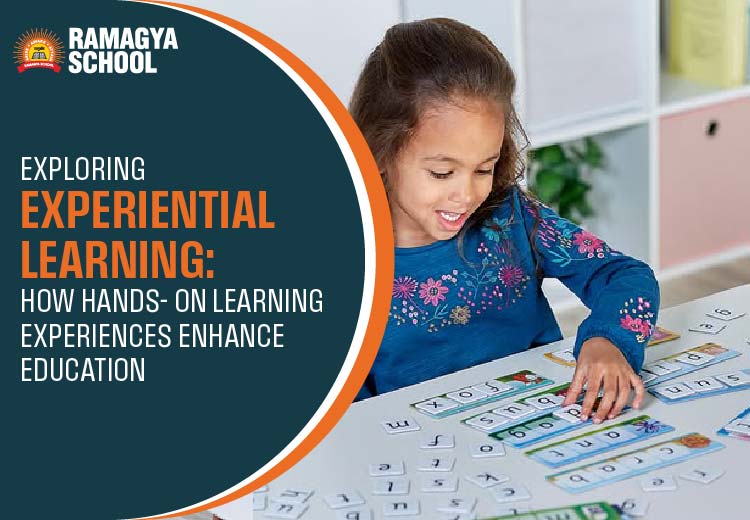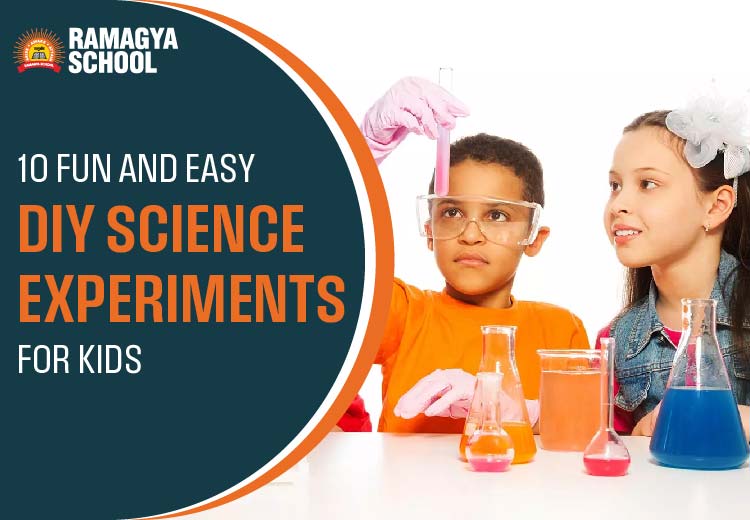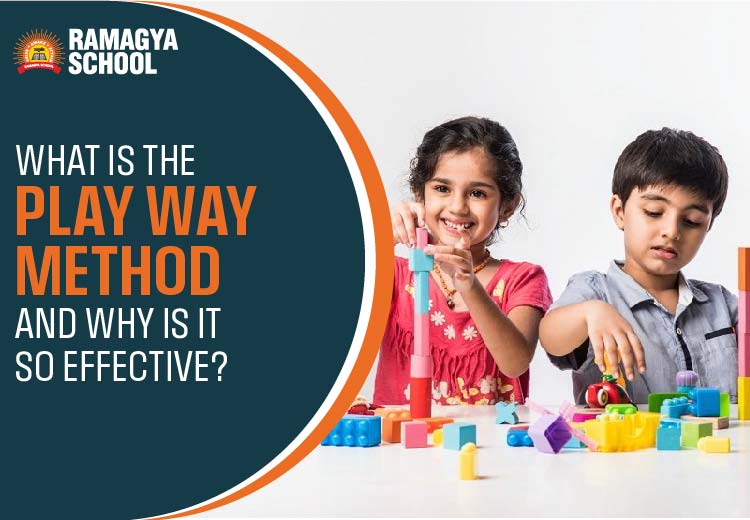Exploring Experiential Learning
How hands-on learning experiences enhance education
Has your child ever said, “I understand better when I do it myself”? That’s the goal of experiential learning.
In this world, learning is not just about reading textbooks, it is more about reading facts and understanding them. They need experiences. And that’s exactly what experiential learning brings into classrooms: it brings learning to life.
Let’s explore what experiential learning means, why it matters, and how it’s changing the way children learn and grow, especially in the best schools in Noida.
What is Experiential Learning?
A method of teaching that obviously emphasizes learning by doing is called experiential learning. It happens when students actively participate and indulge in reflecting on what they’ve done and apply those lessons to new situations.
The kids are not only told about how the plant grows, but, it’s about planting a seed and watching it grow.
To make them understand the history they act out scenes, visit museums, create timeline so that the understanding is not just limited to the textbooks. This creates an environment of lifetime learning.
Experiential learning helps students connect with what they’re studying. It makes learning real, exciting, and easier to remember.
Why is Experiential Learning So Important?
Let’s be honest, traditional learning methods where students only listen to lectures or read long chapters makes the kids only bored and confused.
Experiential learning changes this by involving the child completely in mind, body, and emotions.
Here’s why it makes a difference:
- Better understanding: Students understand the subjects easily because ultimately they are living it through experience and not just reading the concepts.
- Long-term memory: Hands-on learning sticks longer in the brain than plain reading or listening.
- Problem-solving skills: It encourages children to think, ask questions, and find their own answers.
- Confidence building: When students do something on their own, they feel proud. This boosts self-confidence and interest in learning more.
- Learning by doing: This approach supports students with different learning styles whether visual, auditory, or kinesthetic.
The best schools in Noida know this and are using experiential learning methods to make students more involved and thoughtful.
Benefits of Experiential Learning
Experiential learning isn’t just fun it’s full of powerful benefits:
- Improves Understanding and Memory
Doing something yourself helps you understand it better. Children remember lessons longer because they’ve lived them, not just read about them.
- Builds Problem-Solving Skills
It encourages students to think, explore, and ask “why” or “how.” They learn that it’s okay to make mistakes and try again.
- Boosts Confidence
When students figure things out on their own, it builds confidence and self-belief.
- Supports All Learning Styles
Whether your child learns better by seeing, hearing, or doing, experiential learning fits them all.
- Encourages Teamwork
Group projects and shared tasks help students learn how to work well with others, share ideas, and respect opinions.
- Increases Curiosity
Students desire to study more when it’s exciting. They begin to love learning for the sake of it, not just for marks.
What Does an Experiential Learning Program Look Like?
Learning by doing is the main goal of an experiential learning program. Here’s how it looks in a school setting:
- Science That You Can Touch
Instead of just reading science chapters, children do real experiments like making volcanoes, growing plants, or mixing colours. It makes science fun and easy to understand.
- Field Trips That Teach
Students visit museums, farms, factories, and parks. They are better able to relate what they learn in the classroom to the outside world thanks to these practical trips.
- Group Projects and Hands-On Tasks
Children work together to build models, design posters, or prepare simple presentations. These activities teach teamwork, confidence, and creativity.
- Learning Through Role Play and Drama
Students act as doctors, shopkeepers, freedom fighters, or animals to understand topics better. It helps improve communication and makes lessons more fun.
- Art, Music, and Movement
Experiential learning includes drawing, dancing, singing, or crafting, where children express what they learn in their own creative way.
- Outdoor and Nature-Based Learning
Sometimes, students learn outside the classroom like doing math with stones or observing insects during nature walks. Nature becomes the teacher!
- Sharing and Reflecting
After each activity, students are encouraged to share what they learned, which helps them remember and feel proud of their work.
How Teachers Support Experiential Learning
Teachers are not just the providers of information, they are more like guides. In experiential learning, teachers:
- Plan thoughtful activities
- Encourage questions and group discussions
- Let students try, fail, and try again
- Help students reflect on what they’ve done
- Support creativity, instead of pushing for only one right answer
The teacher’s role is to create a safe space where learning becomes a joyful process, not a pressure.
Ramagya School – The Best School in Noida
Among all the educational institutions, Ramagya School stands out as the best school in Noida, especially for its focus on experiential learning.
At Ramagya, kids are always motivated to explore, create and ask questions without the fear of getting judged. Whether it’s through science labs, sports, theatre, art, or real-life activities, the school ensures every student learns by doing. It believes that hands-on experiences bring theory to life and truly shape a student’s mind.
Ramagya School encourages hands-on experiments that bring theory to life and enhance students’ horizons across various disciplines through experiential learning. It’s not just about passing exams it’s about preparing for life with clarity, confidence, and curiosity.
Final Thoughts
So, what is experiential learning? It is a beautiful way of learning where children do, feel, think, and learn. It brings books alive, builds stronger minds, and most importantly makes children love learning.
As education continues to grow and change, one thing remains clear: experiential learning is the future. And the schools that embrace it will help raise thinkers, doers, and kind problem-solvers.
If you’re looking for the best school in Noida that believes in nurturing the whole child’s mind, body, and heart then experiential learning at Ramagya School is the way forward.
Because real learning doesn’t come from just reading it comes from living it.




